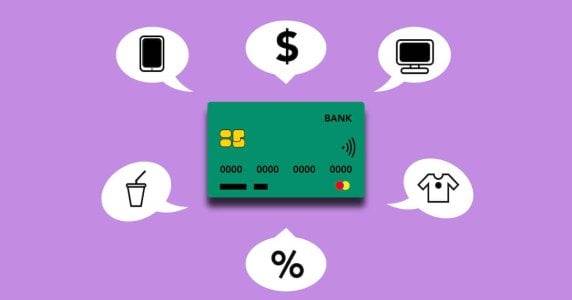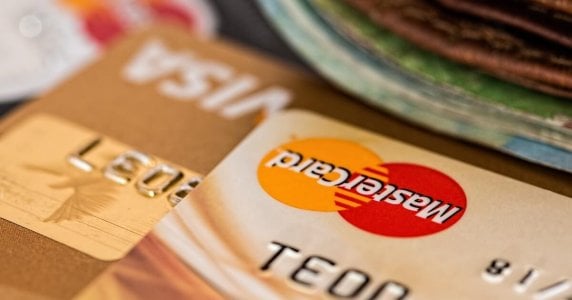Will the upcoming Buy Now Pay Later regulations affect your favourite payment options?
- Replies 19
In today's world of sky-high prices, navigating day-to-day expenses can be a stumbling block for many Australians, not least for those living on fixed pension or disability payments.
And in an increasingly uncertain and expensive world, smart shopping and payment strategies, such as Buy Now Pay Later (BNPL) schemes, have quickly become a necessity.
These services have been a lifeline for many financially struggling Australians, including pensioners. However, the upcoming crackdown on these services has caused significant concern among its users.
So, what's going on, and how will it affect you?
Mona Ibrahim, a pensioner who relies on Afterpay, Zip Pay and Hum, is one such individual expressing her fears over the new regulations.
Due to a combination of health issues and costly medical treatments such as kidney transplants, dialysis, and a $2,000 operation, Ms Ibrahim was left with just $10 a week from her disability payments.
To make ends meet, Mona turned to BNPL services, which allowed her to purchase essential items and spread the cost over a period of time.
However, this convenience came at a high price. Ms Ibrahim quickly accumulated $22,000 in credit card, finance and BNPL debt across her three accounts, leaving her future uncertain.
With the pending changes to BNPL regulations, Ms Ibrahim – and many others like her – are worried about their ability to afford essential items.
‘Everything's going up. I'm scared of where we're going to end up. We are going towards poverty,’ Ms Ibrahim told reporters.
The Albanese government recently announced plans to classify BNPL services as credit products, requiring operators to hold an Australian credit licence and adhere to specific standards of conduct.
While this may provide better protection for consumers in the long run, it does raise the question of how it will impact customers like Ms Ibrahim, who rely on these services to cover basic necessities such as groceries, medication and bills.
‘I'm not thinking about myself; I'm thinking about everybody. I've seen a lot of people suffer,’ she said.
In the 2021-22 financial year, there were over 7 million active BNPL accounts, generating more than $16 billion in revenue – a 37 per cent increase from the previous year.
At present, BNPL services are not regulated in the same way as credit cards, posing a greater financial risk for consumers.
The proposed changes aim to address these risks, but they also have the potential to leave vulnerable Australians in a difficult position.
Financial Services Minister Stephen Jones explained that the changes were necessary due to the ‘growing dangers to consumers, which up until now have been largely unregulated and unchecked’.
‘The plan will protect people from the spirals of harm that unregulated, unrestricted lending can cause,’ he added.
‘It looks like credit, acts like credit, and it carries the risk of credit.’
While it's important to ensure consumers are protected from potential harm, it's also vital to consider the impact on seniors like Ms Ibrahim, who rely on BNPL services to make ends meet.
If you, too, are using BNPL services, we encourage you to keep a close eye on the upcoming changes.
 Have you used BNPLs to purchase any essential items? Do you think these new regulations will affect how you use these payment options? Let us know in the comments below – your thoughts are valuable to us.
Have you used BNPLs to purchase any essential items? Do you think these new regulations will affect how you use these payment options? Let us know in the comments below – your thoughts are valuable to us.
And in an increasingly uncertain and expensive world, smart shopping and payment strategies, such as Buy Now Pay Later (BNPL) schemes, have quickly become a necessity.
These services have been a lifeline for many financially struggling Australians, including pensioners. However, the upcoming crackdown on these services has caused significant concern among its users.
So, what's going on, and how will it affect you?
Mona Ibrahim, a pensioner who relies on Afterpay, Zip Pay and Hum, is one such individual expressing her fears over the new regulations.
Due to a combination of health issues and costly medical treatments such as kidney transplants, dialysis, and a $2,000 operation, Ms Ibrahim was left with just $10 a week from her disability payments.
To make ends meet, Mona turned to BNPL services, which allowed her to purchase essential items and spread the cost over a period of time.
However, this convenience came at a high price. Ms Ibrahim quickly accumulated $22,000 in credit card, finance and BNPL debt across her three accounts, leaving her future uncertain.
With the pending changes to BNPL regulations, Ms Ibrahim – and many others like her – are worried about their ability to afford essential items.
‘Everything's going up. I'm scared of where we're going to end up. We are going towards poverty,’ Ms Ibrahim told reporters.
The Albanese government recently announced plans to classify BNPL services as credit products, requiring operators to hold an Australian credit licence and adhere to specific standards of conduct.
While this may provide better protection for consumers in the long run, it does raise the question of how it will impact customers like Ms Ibrahim, who rely on these services to cover basic necessities such as groceries, medication and bills.
‘I'm not thinking about myself; I'm thinking about everybody. I've seen a lot of people suffer,’ she said.
In the 2021-22 financial year, there were over 7 million active BNPL accounts, generating more than $16 billion in revenue – a 37 per cent increase from the previous year.
At present, BNPL services are not regulated in the same way as credit cards, posing a greater financial risk for consumers.
The proposed changes aim to address these risks, but they also have the potential to leave vulnerable Australians in a difficult position.
Financial Services Minister Stephen Jones explained that the changes were necessary due to the ‘growing dangers to consumers, which up until now have been largely unregulated and unchecked’.
‘The plan will protect people from the spirals of harm that unregulated, unrestricted lending can cause,’ he added.
‘It looks like credit, acts like credit, and it carries the risk of credit.’
While it's important to ensure consumers are protected from potential harm, it's also vital to consider the impact on seniors like Ms Ibrahim, who rely on BNPL services to make ends meet.
If you, too, are using BNPL services, we encourage you to keep a close eye on the upcoming changes.
Key Takeaways
- A struggling pensioner has raised concerns that the impending crackdown on controversial Buy Now Pay Later (BNPL) services will lead to her becoming unable to afford essential items.
- The Albanese government announced plans to make BNPL services to be classified as a credit product, requiring operators of those services to hold an Australian credit licence and adhere to standards of conduct.
- Ms Ibrahim has accrued $22,000 in credit card, finance and BNPL debt across her three accounts and fears the new crackdown will lead to her and others being left behind, unable to purchase items over a period of time.
- Financial Services minister Stephen Jones said the changes were sorely needed as there were ‘growing dangers to consumers, which up until now have been largely unregulated and unchecked’.









